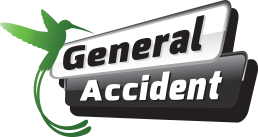A Comprehensive Guide to Insurance Perils
If you’re interested in purchasing an insurance policy you’ll come across the word “peril” a lot in your research. To be an informed purchaser, you’ll have to understand the types of perils and then decide which ones you want included in your insurance policy. But first, let’s start with the definition.
We define a peril as a condition that gives rise to a loss, for which a claim will be filed. Examples of perils include a fire, theft, earthquake, and hurricane. Here’s everything you need to know about insurance perils so that you can make an informed decision next time you decide to purchase an insurance policy.
Perils are typically divided into three types; natural, human-made, and accidental.
- Natural Perils- These refer to natural disasters such as earthquakes, floods, hurricanes, and wildfires. Insurance policies rarely cover all-natural disasters in one policy.
- Human-Made Perils- These are incidents caused by someone else such as theft, vandalism, riots, and civil commotion.
- Accidental Perils- These are occurrences like fire, explosion, and unintentional water damage.
Included Perils vs Excluded Perils
When shopping for insurance, ensure you are crystal clear about the perils included and excluded. Here’s what we mean.
An included peril is a specific condition that your insurance policy will protect against. For example, if you purchase flood insurance, the included peril is a flood. It also means that you can submit a claim if your property is damaged by a flood. You will find a list of all the included perils in your policy booklet when you purchase a policy.
On the other hand, an excluded peril is a specific condition that your insurance policy will not protect against. When you buy an insurance policy to protect your property, there is usually a list of perils that are excluded. For example, typical exclusions are earthquakes and floods. If your insurance policy excludes those, you would need to purchase plans to cover those perils if you want coverage. You won’t be able to submit a claim if your property sustained damage due to an excluded peril.
Named Perils vs. Open Perils Policies
It’s important to know the difference between named perils and open peril policies to avoid misunderstandings when making a claim.
A named peril policy, sometimes called a specific peril policy will only cover perils that are named in the policy. For example, if you bought a policy to specifically protect you in the event of fires only, you won’t be able to submit a claim if your house flooded.
Named peril policies are usually the cheaper option, but they may not provide the coverage you need for peace of mind.
Open perils policy, or all risks policy, on the other hand, will cover losses or damages caused by any peril that was not specifically excluded. For example, if your home fire is damaged but fire was not specifically excluded in your home insurance policy, you may be able to submit a claim and receive compensation.
It’s important to note that an open perils policy does not cover every peril. You may still need to purchase a named peril policy to further cover your property. For example, your open perils policy may exclude a peril like a flood. You’ll have to add flood insurance to your policy to be covered.
In addition, open perils policies often do not cover damage resulting from wear and tear, mold, and sewage issues among other issues.
Be sure to check your insurance policies so you can be absolutely sure what is covered and what is not.
How GENAC helps you
At General Accident, we have several offerings to protect your precious property such as:
- Homeowners Insurance- This is the most comprehensive property insurance available for homeowners. The policy covers theft, burglary, all risks, and your legal liability to third parties along with the standard perils such as lightning/fire, hurricane, cyclone, tornado or windstorm, and malicious damage.
- Fire and Allied Perils- Under this policy, your business, shops, contents, machinery, and stock are protected against fire and other perils such as flood and explosion.
- Commercial All Risks- This policy includes perils covered under the Fire and Allied Perils policy as well as coverage for your property against accidental damage and burglary.
- Consequential Loss/Business Interruption- This policy covers financial loss, consequent on the interruption of business by an unforeseen event such as a hurricane, fire, or breakdown of machinery, covered by a material damage policy.
If you’re ready to protect your property and get the peace of mind offered by a great insurance policy, don’t hesitate to contact us.
If you’re ready to insure your car or property and minimize out-of-pocket expenses, GenAc is here to serve you. Contact us to get started.


